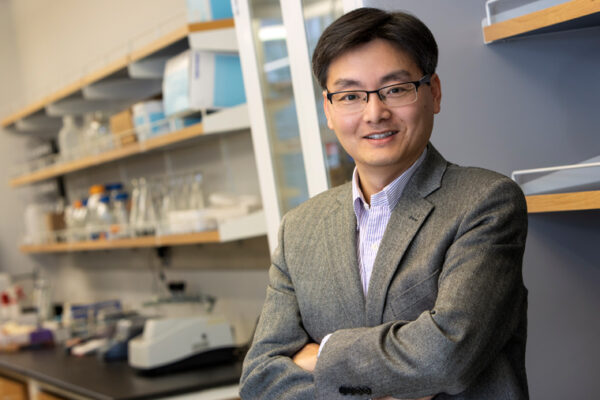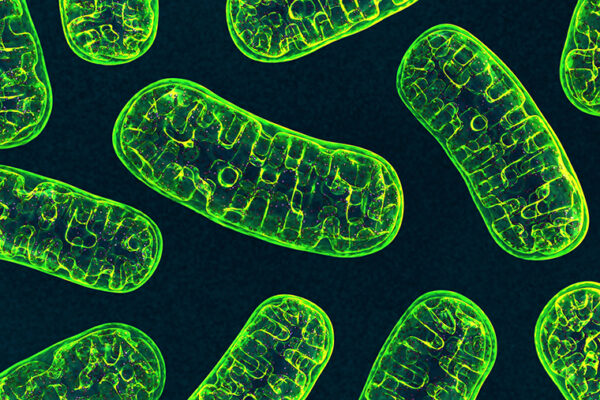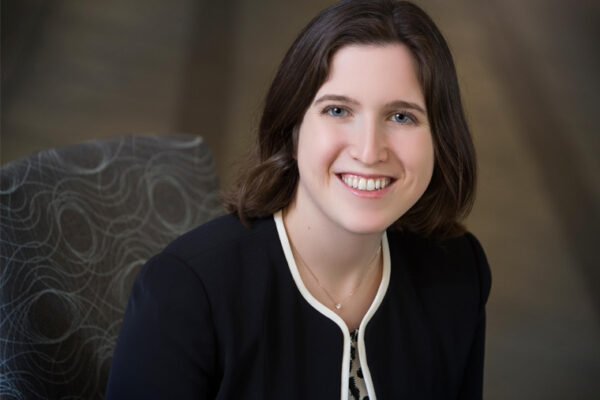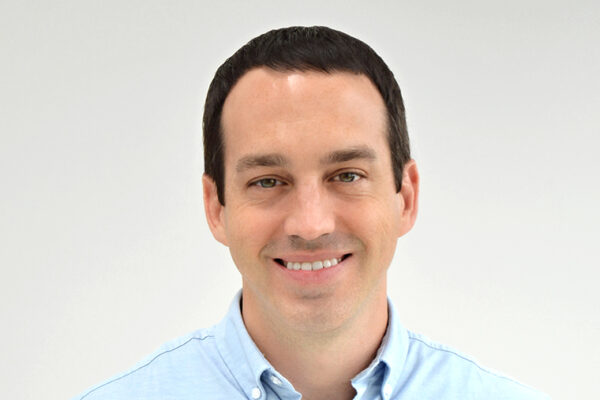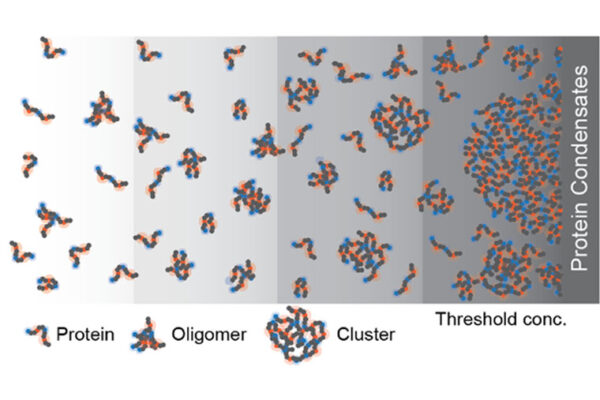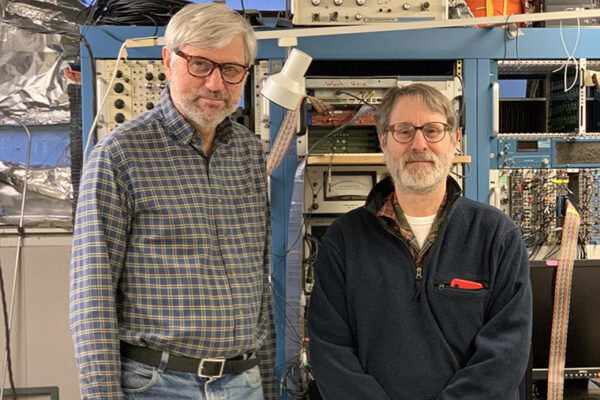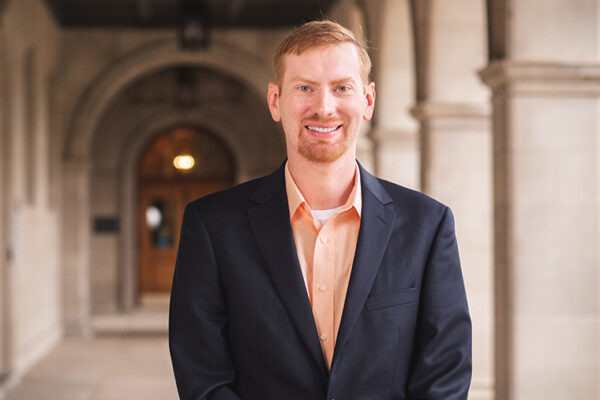He is turning waste into commodity with DOE grant
Zhen (Jason) He is leading a multi-institution team developing a scalable upgrade to current wastewater systems with a $2.3 million federal grant.
Sugar metabolism is surprisingly conventional in cancer
A study in Molecular Cell led by chemist Gary Patti in Arts & Sciences shows that cancer cells don’t want to waste glucose, they just consume it too quickly. The discovery was made possible with metabolomics, which allowed Patti and his team to observe the speed at which small molecules move through cells.
Parker receives grant to study mechanics behind ‘dicamba drift’
Kimberly Parker at the McKelvey School of Engineering will use a grant from the Herman Frasch Foundation for Chemical Research to better understand dicamba volatilization.
Barnes wins grant to expand architectures of interlocking molecular rings
Jonathan Barnes, assistant professor of chemistry in Arts & Sciences, won a $450,000 grant from the National Science Foundation to investigate and expand efficient methods for synthesizing catenane-based polymers and networked materials.
New structure found in cells
A research group led by Rohit Pappu in the McKelvey School of Engineering and Anthony Hyman at the Max Planck Institute have discovered a new, relevant level of structure in cells.
Interlocking rings unlock new material properties
Researchers working with Jonathan Barnes, assistant professor of chemistry in Arts & Sciences, published new research showing how molecules with interlocking ring architectures can be functionalized and incorporated into three-dimensional polymer networks and materials.
Giving metal to microbes could reduce greenhouse gas
Collaborative research from the labs of Daniel Giammar and Jeffrey Catalano finds a lack of available metals may be responsible for more nitrous oxide than previously thought.
Pappu lab untangles more IDR secrets
Rohit Pappu’s latest look at intrinsically disordered regions of proteins explains why some sequences behave in different ways. His paper was published in the Proceedings of the National Academy of Sciences.
Novel particle detector used to study alternate path to carbon creation in stars
A team that includes Lee Sobotka and Robert Charity, both in Arts & Sciences, concluded that the role that neutrons play in the creation of carbon, considered the definitive building block of life, is much smaller than previously thought.
Fournier wins molecular spectroscopy award
Joseph A. Fournier, assistant professor of chemistry in Arts & Sciences, is the winner of the 2022 Flygare Award, given biannually by the International Symposium on Molecular Spectroscopy.
Older Stories
